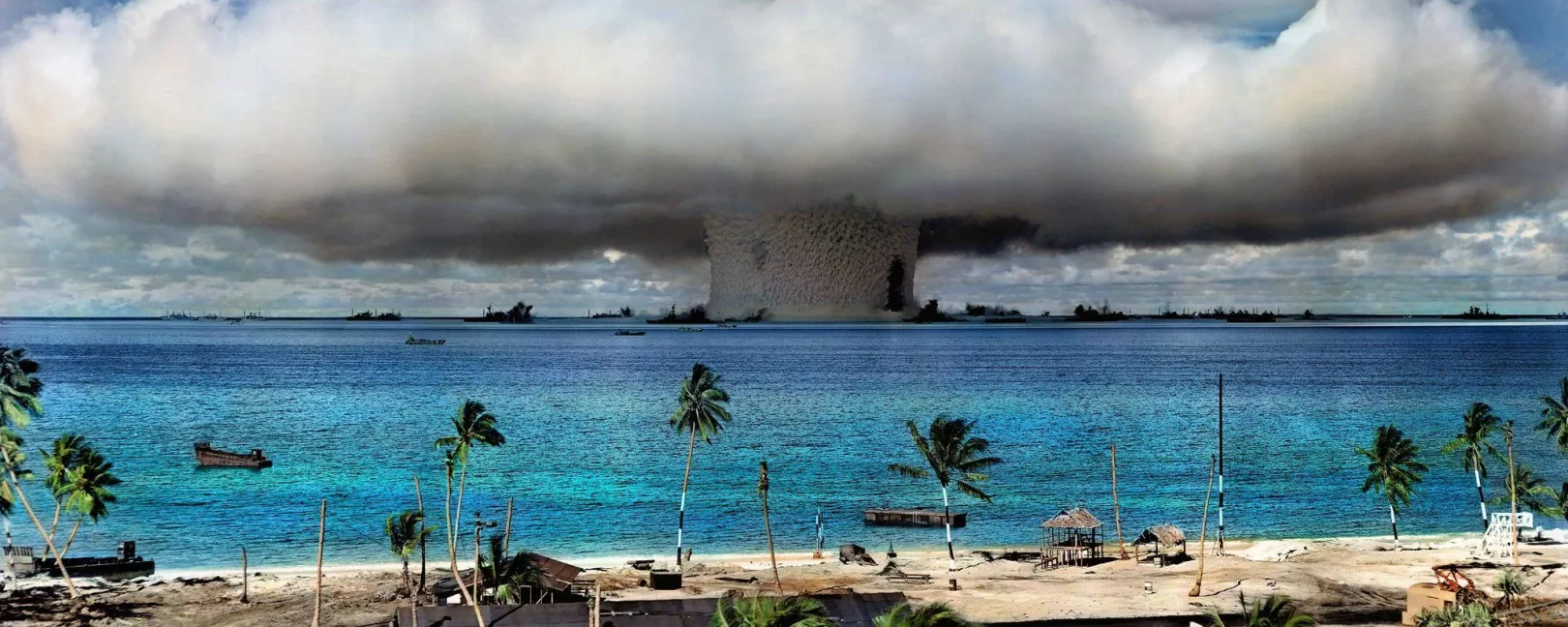Nuclear Weapons and Their Humanitarian and Ecological Consequences
With the Russian war against Ukraine, Russia’s fear-mongering (nuclear) rhetoric and the nine nuclear-armed states’ ongoing and increasing build-up of their arsenals, it has become seemingly harder to advocate for and reach Global Zero, the total elimination of nuclear weapons.
Against this background, it is now more than ever that we need to remind ourselves of the costs of nuclear weapons: catastrophic long-term impacts on human life and our environment. Therefore, we have to listen to those most affected by the production, testing, and use of nuclear weapons.
In this dossier, activists from communities affected by nuclear weapons production, use and testing tell their stories. They are highlighting that the destructive effects of nuclear weapons do not belong to the past, but to the present. It is high time to ensure that the future looks different – for the sake of affected communities, our climate and ecosystem, and for the sake of all humankind.
This web dossier is realized in collaboration with the Centre for Feminist Foreign Policy.

Bernice Gutierrez about the medical implications of having lived near the Trinity Test site - Heinrich-Böll-Stiftung
 Watch on YouTube
Watch on YouTube
Bernice Gutierrez about the medical implications of having lived near the Trinity Test Site
Bernice Gutierrez, who was born in Carrizozo, New Mexico, talks about the medical implications of having lived near the test site where the United States conducted the so-called Trinity Test during the Second World War. Bernice shares about her struggle for justice as part of the Tularosa Basin Downwinders Consortium, an organisation advocating for nuclear justice for those who were impacted by nuclear tests in the US.
Hinamoeura Cross tells the story of French nuclear tests in French Polynesia - Heinrich-Böll-Stiftung
 Watch on YouTube
Watch on YouTube
Hinamoeura Cross tells the story of French nuclear tests in French Polynesia
Hinamoeura Cross, who was born in Papeete, capital of the island of Tahiti in French Polynesia, tells the story of French nuclear tests in her home country. Hinamoeura shares her journey of learning about the impact of nuclear tests, being diagnosed with leukaemia and her international advocacy to raise awareness.
Shizuka Kuramitsu and Hideo Asano, born and raised in Japan, discuss which lessons should be learned from compensation cases in Japan. Shizuka and Hideo tell the story of how Hibakusha, survivors of the atomic bombs, achieved the victim assistance programme while analysing the gaps and challenges of the existing legal framework.
Adiya Akhmer and Aigerim Seitenova discuss the history of Soviet nuclear testing. In their conversation, Adiya and Aigerim, both born and raised in close proximity to the former Semipalatinsk test site in Kazakhstan, explore questions of nuclear justice while reflecting on the collective trauma connected to the nuclear legacy of their region.






